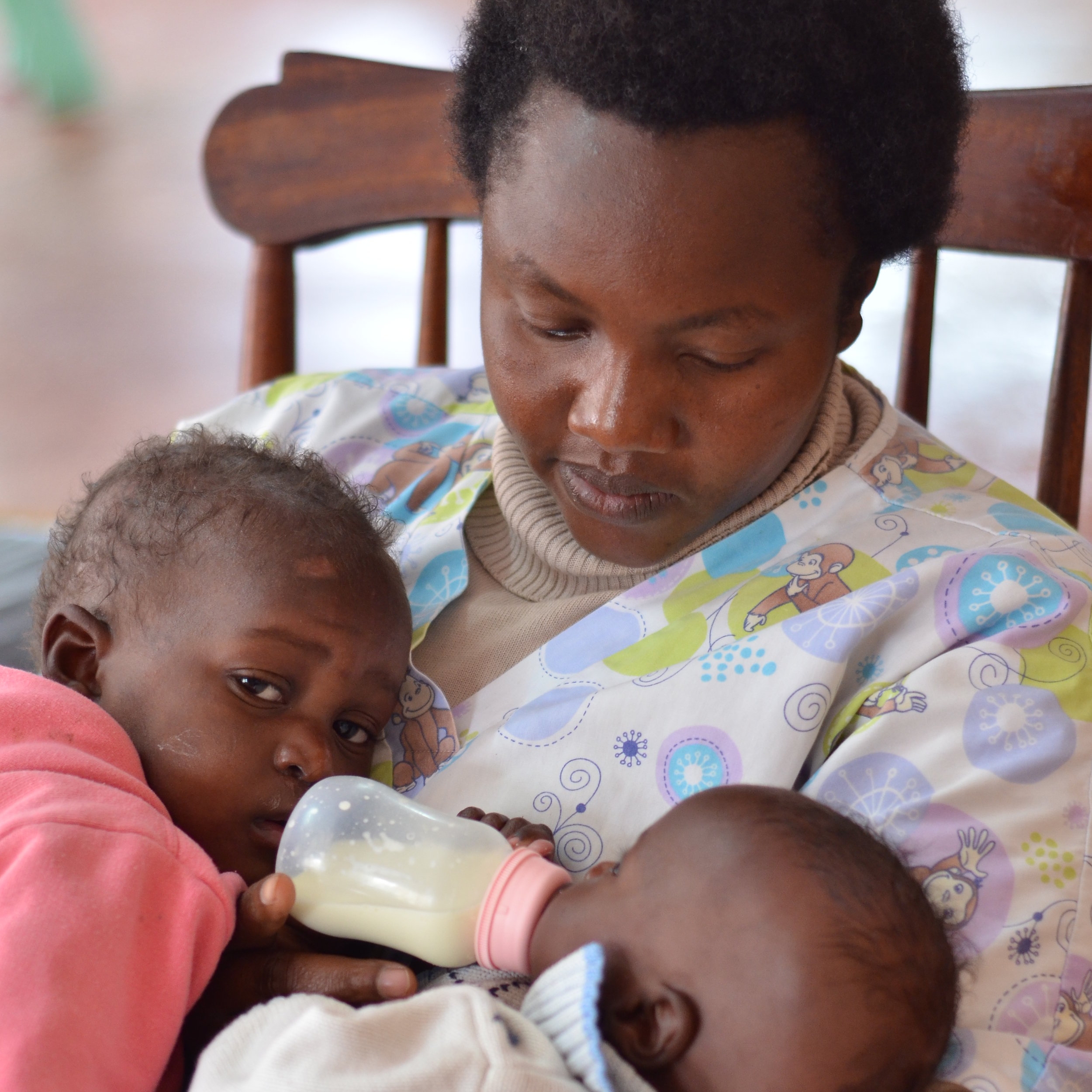
OUR WORK > CARE PROGRAMS
Women's Health
GIVING WOMEN AND MOTHERS ACCESS TO THE CARE THEY NEED.
Women remain the backbone of the home in Kenya and yet they are often valued the least. Nearly half of Kenyan women who are pregnant are under the age of 19. So many deliver at home without skilled birth attendants and suffer birth trauma, hemorrhage, infection, and maternal or neonatal death. And many lack supportive communities as they become parents.
AMPATH and our partners are working not just to provide care, but also to remove the obstacles that get in the way of it. We’ve built state-of-the-art maternal health facilities and helped people get to them. We’ve given women access to contraception and education to improve their health and their families' livelihood. And most importantly, we’ve helped communities learn how to support themselves and each other for long-term, sustainable success.

98%
Of mothers enrolled in AMPATH’s Chamas for Change deliver their babies in a health facility
2,000+
Young mothers enrolled in parenting programs
4.2%
Mother-to-child HIV transmission rate, lowered from 35%

AREAS OF FOCUS
The Riley Mother and Baby Hospital is a state-of-the-art maternity and neonatal facility that not only provides comprehensive care for mothers both before and after delivery, but also trains students and interns who’ll become practicing OB-GYNs. The hospital serves as a referral center for women and infants all across Western Kenya, with 12,000 babies delivered there each year and 100 babies in neonatal care at any given time.
In East African culture, chamas are groups of women who come together to pool resources and receive support. Chamas for Change is a program initiated by AMPATH to connect mothers to other mothers. With the help of Kenyan community health workers, the groups get education on healthcare, as well as access to savings and loan programs. With that help, they can afford healthcare and encourage each other to get it.
Women and children in poor and rural communities often face the challenges of childhood and parenthood without supportive relationships in the home or community. Malezi Mema (“Parenting Well” in Swahili) is a growing AMPATH initiative that steps in to be that support, teaching parenting skills that improve health and wellbeing for families and reduce some of the stresses parents in Kenya face.
More than 126,000 women in western Kenya have been screened for cervical cancer by AMPATH programs as of 2021. Working with local health leadership teams, AMPATH has set up screening clinics, developed capacity for advanced treatments like cryotherapy and radical hysterectomy, and trained medical students and nurses who provide diagnostic and curative procedures. And because more than half of women with cervical cancer also have HIV, AMPATH is working to incorporate Human papillomavirus (HPV) testing into HIV treatment visits.
Women’s health, or Obstetrics and Gynecology (OBGYN), is an important field of training within AMPATH. Collaboration between OBGYN faculty from Moi University School of Medicine, University of Toronto, and Indiana University have created and continue to sustain robust OBGYN training programs. This partnership created an OBGYN residency program at Moi, along with specialized fellowship training in gynecologic oncology and maternal fetal medicine.
Across AMPATH clinics, women receive family planning services that are vital to safe motherhood, healthy families and prosperous communities. And we also play a role in community education events around contraceptive counselling and family planning. In the last 3 years, AMPATH helped build a complex family planning contraception clinic, first for women on anti-coagulation that is teratogenic, and now for all reproductive age women with complex medical conditions. We offer contraception free of charge to these women, as the risk of pregnancy is so great.
Without treatment, the chances a pregnant HIV-positive mother will pass the virus to her infant or newborn are 35%. Together, our in-clinic and home-based programs have lowered mother-to-child transmission to 4.2%, practically preventing it in our treatment areas.
YOUR GIFT MAKES A DIFFERENCE.
$25
A Pap smear for 5 women to screen for cervical cancer
$50
Allows an HIV-positive pregnant woman to deliver her baby in a hospital
$100
Treatment for 5 women before cervical abnormalities become cancer
$300
Surgery to cure early stage cervical cancer

LATEST NEWS ON WOMEN'S HEALTH
Celebrating HIV-exposed infants (HEI) who reach two years without contracting the virus is a significant achievement in HIV care.
The County Government of Elgeyo Marakwet, Metkei Ward, in collaboration with AMPATH and Moi University, has received a generous equipment donation from the German Doctors Agency to equip the new Metkei Community Maternity Ward.
Tremendous successes have been achieved through the Chamas for Change program activities over the past 12 years of implementation.
USAID AMPATH Uzima proudly joined Uasin Gishu County in the grand opening of the Mama Rachel Ruto Maternity Hospital.
To honor Mother's Day, USAID AMPATH Uzima celebrated and empowered young mothers at the Moi Teaching and Referral Hospital (MTRH) Antenatal Care and Well Baby (Postnatal care) units.
OTHER CARE PROGRAMS

















